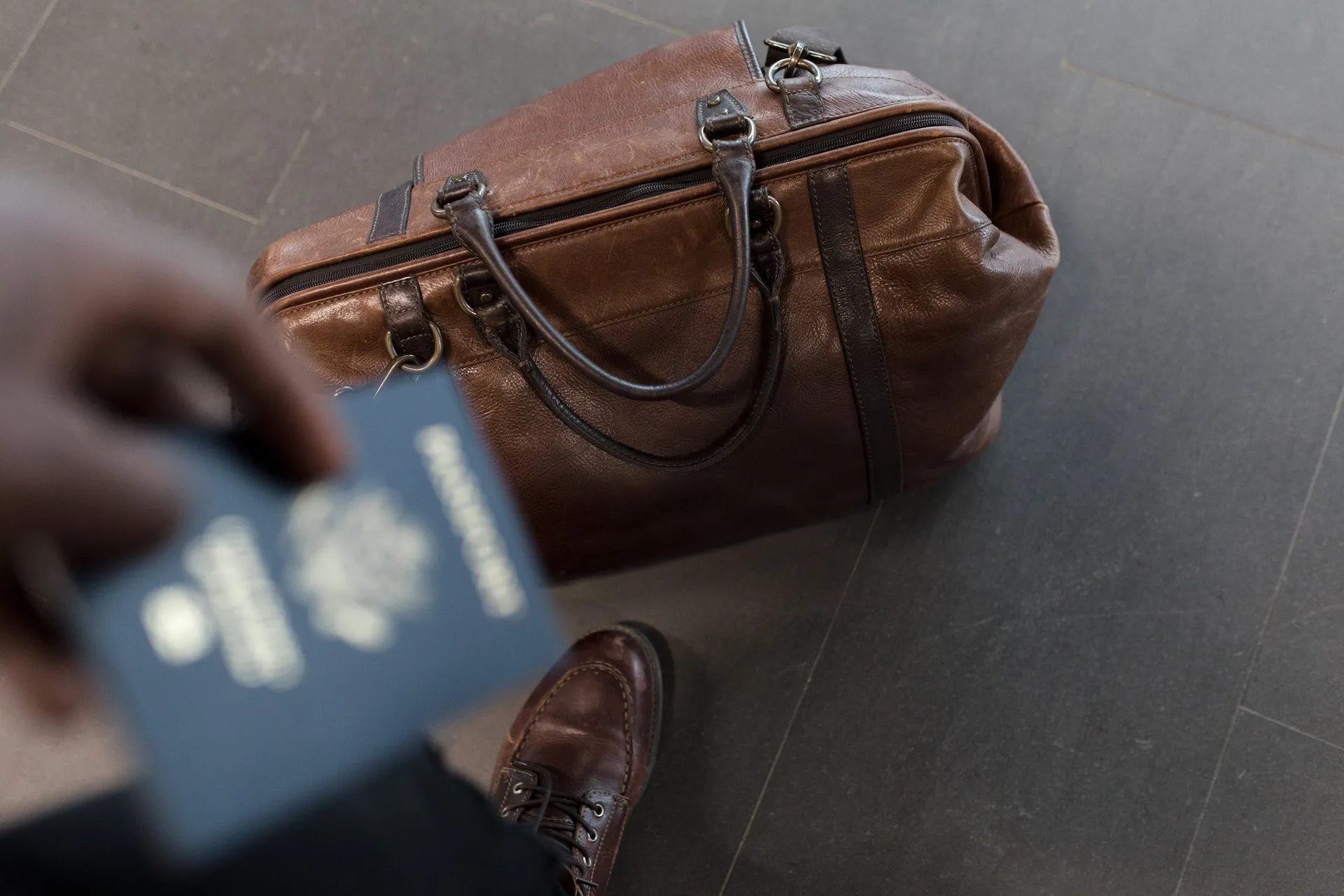Irish Study Visas
If you are a citizen of a non-EEA country and you want to come to Ireland to study, you need to obtain a study visa. Find out more about what Irish study visas you might be eligible for and how to apply.
To receive assistance with applying for a study visa to Ireland, call our Immigration consultants on +44 (0)333 414 9244.
Read our 1001 reviews
Request a call back from our immigration experts
Benefits of Choosing IAS‘ Ireland Immigration Lawyers
When it comes to obtaining an Ireland visa or permit, IAS Ireland immigration lawyers are well-equipped to help you.
With IAS’ track record of successfully helping clients visit or immigrate to Ireland successfully, we can help you achieve your goal.
Our dedicated immigration lawyers provide our services through a comprehensive and personalised approach. With IAS, you enjoy:

Compassionate support from an experienced immigration lawyer dedicated to your success



Support in gathering supporting documents and completing a high-quality application.



Confidence that your case is being handled by an experienced team.



In-house document checks done by lawyers who are well-versed in Ireland immigration matters.
Services we Provide
How can I come to Ireland to study?
Every year thousands of foreign students choose Ireland as their study destination. The country not only has great universities but as Ireland is part of the European Union, students can enjoy an international atmosphere and a welcoming environment.
If you are a citizen of UK or a country that belongs to the EU/EEA, you do not need to apply for a visa to come to Ireland to study. If, however, you are a national of a non EEA country, you need a valid visa to be able to enter Ireland and complete a university degree there.
As the language of instruction used at academic institutions in Ireland is English, you have to meet the minimum English language requirements in order to be granted a Student Visa.
What Irish Study Visas can I apply for?
There are two types of study visas you can apply for depending on the length of your study programme:
- Short Stay ‘C’ Study Visa – intended for those coming to complete a study course shorter than three months
- Long Stay ‘D’ Study Visa – intended for those coming to complete a study course longer than three months.
The cost of applying for either of the visa types is €60 if you are applying for a single entry permit or €100 if you need a multiple entry visa.
If you are not sure which visa you should apply for, get in touch with our Immigration experts. They will analyse your circumstances and help you decide which permit is the right one for you. They will also help you submit your application.


What is the Short Term Study Visa to Ireland?
The Short Term Study Visa to Ireland is designed for foreign nationals who want to come to Ireland to complete a short-term course that lasts one semester or less. If you’re travelling to Ireland to sit an exam or complete a training or language course, you should also apply for this visa.
Just like other visas to Ireland that belong to the Short Stay ‘C’ category, this visa grants applicants permission to stay in the country for up to 90 days.
To be eligible for the Short Term Study Visa to Ireland you have to be enrolled in a course at the time of applying and you have to have paid the relevant fees.
Keep in mind that if you come to Ireland on the Short Term Study Visa, you will not be able to work or access state services. You will also not be able to extend your visa.


What is the Long Term Study Visa to Ireland?
If you want to come to Ireland to complete a university degree, you have to apply for the Long Term Study Visa to Ireland. It is one of Long Stay ‘D’ Visas that allow foreign citizens to stay in the country for more than three months.
To be eligible for the Long Term Study Visa to Ireland, at the time of applying you need to be enrolled in a full-time course featured on the Interim List of Eligible Programmes published by the Irish Naturalisation and Immigration Service (INIS). When applying, you also have to show that you have at least €7,000 in savings and that you or someone who will be helping you financially have access to €7,000 for each year of your studies in Ireland. That does not include tuition fees.
In addition to getting the visa, after arrival, you need to register with the Garda National Immigration Bureau, which can grant you the permission to stay in Ireland longer than 90 course days.
If your application for the Long Term Study Visa is successful, you will be allowed to work part-time during semesters, which means they can work up to 20 hours per week, and full-time, so up to 40 hours, during holidays.
How to apply for a Study Visa to Ireland?
You can apply for a Study Visa to Ireland up to three months before your intended date of arrival in Ireland.
To apply, you have to complete and submit an online application. After you do that, you will see a summary sheet where you will find information explaining which immigration office you have to send the required documents to.
Then you have to prepare a number of documents that include:
- Two passport size photographs in colour
- Valid passport
- Signed letter of application where you state the reason for your trip to Ireland
- Letter of acceptance proving that you are enrolled in a course at an academic institution in Ireland
- Receipt showing that you paid the registration and tuition fees
- Receipt showing that you have paid the visa application fee
- Details of your academic qualifications required for the course in Ireland
- Certificate proving your competences in English language
- Proof of having enough funds to support yourself financially in Ireland without recourse to public funds.
Once you have gathered all the required documents, you have to send them to the immigration office indicated on your application summary sheet.


How can IAS help?
Here at IAS we are committed to helping our clients fulfil their dream of studying abroad. If you wish to come to Ireland to study, we can offer you expert legal guidance. We can help you submit your application and gather all the necessary supporting documentation. We can also advise you on which type of Study Visa to Ireland, long term or short term, is best for the purpose of your trip.
If you would like to stay in Ireland after you have completed your studies, our Immigration experts are qualified to tell you what the best route to do that is. They can also assist you with applying for a different immigration permit once your Study Visa expires.
To find out more about how our immigration services can help, call us today on +44 (0)333 414 9244.
Table of Contents
Table of Contents will appear here.Legal Disclaimer
The information provided is for general informational purposes only and does not constitute legal advice. While we make every effort to ensure accuracy, the law may change, and the information may not reflect the most current legal developments. No warranty is given regarding the accuracy or completeness of the information, and we do not accept liability in such cases. We recommend consulting with a qualified lawyer at Immigration Advice Service before making any decisions based on the content provided.
Frequently Asked Questions
If your application for the Short Term Study Visa to Ireland is successful, you will be able to come to Ireland for up to 90 days. Once your visa expires you will have to leave the country. Unfortunately, it is not possible to extend your Short Term Study Visa. Extensions are granted only in exceptional, unforeseen circumstances.
Nevertheless, once you leave Ireland, you can apply for a different visa and come back to stay there for longer. Talk to our immigration lawyers about the purpose of your trip to Ireland and they will advise you which permit you should apply for.
If you come to Ireland on the Short Term Study Visa, you will not have the right to work. If, however, you successfully apply for the Long Term Study Visa, you will be able to work up to 20 hours per week during the academic year and up to 40 hours during holidays.
Keep in mind that once you complete your study course, you will no longer have this right. If you want to keep working in Ireland, you will have to leave the country and apply for another visa, for example, the Employment Visa to Ireland.
If you are a citizen of a country that belongs to the EU or EEA, you do not need to apply for a visa in order to study in Ireland. One of the biggest advantages of being a citizen of a EU member state is having the right to move to other EU countries to work or study there without having to meet any specific requirements or having to apply for a special permit.
In addition to countries that belong to the EU/EEA, there are a number of other countries that formed agreements with Ireland and do not require a Study Visa. Talk to our immigration experts if you are unsure whether you need an Irish Study Visa.
If you want to come to Ireland on a Long Term Study Visa to complete a study course that lasts longer than three months, you need to show that you have at least €7,000 at the time of applying for the visa. In addition to that, you need to show that you or your sponsor are able to get €7,000 for each year of your degree programme in Ireland. These costs do not cover the fees for the study course.


What our clients are saying
How our UK Immigration Lawyers can help
At the Immigration Advice Service our lawyers specialise in a wide range of UK visas, nationality and asylum applications and have represented clients in various successful complex and high-profile cases.















